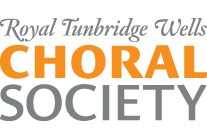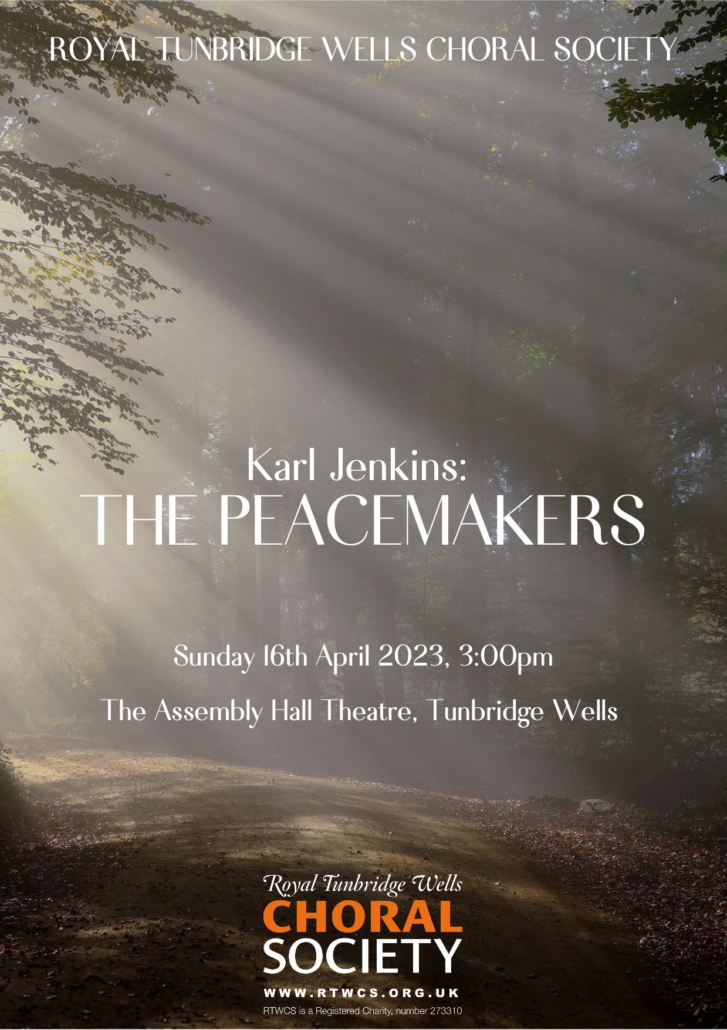119th Season: Programmes and Reviews (2022-2023)
Royal Tunbridge Wells Choral Society critique of “Messiah”
The RTWCS presented its audience to another outstanding concert this afternoon – namely, the well-known and loved Handel’s masterpiece “Messiah”. Handel was renowned for his melodic gift, which was clearly executed by the choir, orchestra and soloists.
Andy Laing led the orchestra into a beautifully clear-cut overture. An excellently performed tenor solo by Dominic Lee “Comfort Ye” introduced us to the first choral offering “And the Glory”; here, the equality and clarity of part singing were immediately evident, with vocal lines lucid and entries clean. Baritone Peter Grevatt’s “This Saith the Lord” and mezzo-soprano Rosamond Thomas’ “But Who May Abide?” were sung with great attention to word details, vocal runs and clear decoration. Soprano soloist Stephanie Kemball-Read used her dramatic voice to good effect in the coloratura aria “Rejoice Greatly”, although on some occasions tended to sing a little sharp. The final chorus “His Yoke is Easy” brought an end to a very successful first section.
The second section commenced with a most thoughtful choral rendition of “Behold the Lamb of God”, its lento tempo contrasting with the later allegro “All We Like Sheep”; it culminated in the heartrending “And the Lord hath Laid on Him” – never sentimental, always in control and thus so effective. An exquisitely performed mezzo-soprano solo of “He was Despised” was followed by an equally sensitive tenor solo interpretation of the recitative “Thy Rebuke” and aria “but Thou didst not Leave” with its heightened positivity. The calming pastoral “How Beautiful are the Feet” was ensued by a technically excellent and stirring baritone solo “Why do the Nations?” and the clearly defined “Thou Shalt Break Them” from the tenor.
Part the Third was introduced vividly by the soprano’s “I Know that my Redeemer Liveth” and a wonderfully contrasting chorus “Since by Man Came Death”. The exciting “Trumpet Shall Sound” duet of baritone and trumpet (played by James Kelly) lead the choir into the full throated “Worthy is the Lamb”, culminating in a fugal “Amen” of such immense proportions that the audience rose to its feet for a well-deserved standing ovation.
This was a concert of exceptional quality. Baroque conventions were well respected with crisp, volume controlled, phrases and light musical and vocal articulation. Everyone coped competently with the use of coloratura which Handel employs throughout. Clarity of dynamic contrast, fugal entries, use of polyphony and clear diction were explored to the limit today. All four soloists are to be applauded for their imaginative extemporisation.
Many congratulation to musical director and conductor Robyn Sevastos, who, as always, was in complete control throughout the performance, and who never fails to produce such high-quality concerts. She commands full respect from the choral society. Thanks also to organist and rehearsal pianist Craig Hudson, whose support is invaluable.
Finally – what an excellent idea to perform on the flat, without using the stage – this affords optimum acoustics for all concerned.
Handel would have been delighted with such an exceptional performance of his beloved oratorio; we can but hope that he would take back his words “God rot Tunbridge Wells”!
Michele Roszak 30th October 2022

